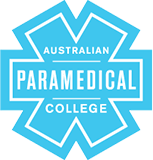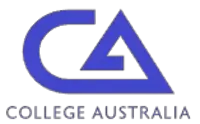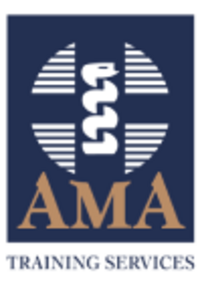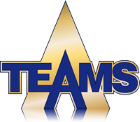
Allied Health courses in Port Macquarie
Course providers in Port Macquarie
The following providers offer Allied Health courses in Port Macquarie.












































Career Pathfinder
Skills shortages + AI Exposure
Discover in-demand careers and understand how each role may be impacted by AI and automation.
- See in-demand occupations across Australia
- Check AI Exposure ratings
- Compare training duration and average income
Common questions
Occupational therapists help patients perform tasks in daily life, while physiotherapists help patients improve their movement, strength and function. The term occupation refers to everyday life tasks, while physiotherapy refers to physical therapy. Both are science-based allied health roles that aim to improve quality of life through prevention, maintenance and treatment.
 Stephen Charlton
Stephen Charlton
You can become qualified to work as an occupational therapist by completing one of the following degrees, depending on your educational pathway:
- Master of Occupational Therapy (postgraduate degree)
Average duration: 24 months - Bachelor of Occupational Therapy (Honours)
Average duration: 4 years - Bachelor of Occupational Therapy
Average duration: 4 years
 Stephen Charlton
Stephen Charlton
You can become qualified to work as a physiotherapist by completing one of the following degrees, depending on your educational pathway:
- Doctor of Physiotherapy (postgraduate degree)
Average duration: 3 years - Master of Physiotherapy (postgraduate degree)
Average duration: 24 months - Bachelor of Physiotherapy (Honours)
Average duration: 4 years - Bachelor of Physiotherapy
Average duration: 4 years
 Stephen Charlton
Stephen Charlton
Yes, you need to complete an accredited degree to work legally as an occupational therapist or physiotherapist in Australia. The two core pathways are completing a bachelor’s degree or a postgraduate degree. The Occupational Therapy Council of Australia and Australian Physiotherapy Council are responsible for accrediting such courses.
 Stephen Charlton
Stephen Charlton
Yes, overseas-qualified practitioners can work in Australia by registering with the Occupational Therapy Board of Australia or Physiotherapy Board of Australia. Practitioners who are currently registered with the Occupational Therapy Board of New Zealand or Physiotherapy Board of New Zealand can apply directly for Australian registration. Other overseas-qualified practitioners have to fulfil the requirements listed on the relevant webpages of the Occupational Therapy Board of Australia and Physiotherapy Board of Australia.
 Stephen Charlton
Stephen Charlton
If you have already completed an approved degree in a different discipline, you can gain an accredited postgraduate degree to become qualified to work as an occupational therapist or physiotherapist. Examples of such degrees are a Master of Occupational Therapy, Master of Physiotherapy and Doctor of Physiotherapy. Postgraduate degrees in these fields may have additional entry requirements, including but not limited to health-related prerequisite subjects.
 Stephen Charlton
Stephen Charlton
In some cases, completing vocational education and training (VET) in a related discipline can allow you to meet the entry requirements for a bachelor’s degree in these fields. Entry requirements vary between educational providers. Some providers offer a VET entry pathway with a minimum of a Certificate IV, but others require a minimum of a diploma or advanced diploma. Some providers do not offer a VET pathway for these courses at all. Therefore, it’s wise to confirm the entry requirements for your desired bachelor’s degree before starting a VET course.
 Stephen Charlton
Stephen Charlton
In addition to completing an accredited degree, occupational therapists and physiotherapists will need to register with the Occupational Therapy Board of Australia or Physiotherapy Board of Australia to work in Australia. The Australian Health Practitioner Regulation Agency (AHPRA) administers practitioner registration on behalf of these boards. There are different requirements to gain registration for Australian-qualified practitioners, New Zealand-registered practitioners, and other overseas-qualified practitioners.
 Stephen Charlton
Stephen Charlton
Career paths for these professions include independent contracting, starting a practice, working in community care, paediatrics, mental health, rehabilitation, disability, medical or aged care sectors).
 Stephen Charlton
Stephen Charlton
Jobs and Skills Australia reports that the median full-time weekly earnings for occupational therapists and physiotherapists in 2024 are $1,526 and $1,710, respectively. These figures can be contrasted with Australian workers of all occupations, who earn a median full-time weekly income of $1,697.
 Stephen Charlton
Stephen Charlton
There is a significant demand for occupational therapists across Australia. Jobs and Skills Australia’s Occupation Shortage List indicates that the labour market had a shortage of occupational therapists across all states and territories from 2022 to 2024.
 Stephen Charlton
Stephen Charlton
There is substantial demand for physiotherapists in Australia. Jobs and Skills Australia’s Occupation Shortage List indicates that the labour market experienced a shortage of occupational therapists and physiotherapists in most states and territories from 2022 to 2024.
 Stephen Charlton
Stephen Charlton
Working as an occupational therapist or physiotherapist comes with the satisfaction of directly helping to improve patients’ quality of life. Furthermore, the job market is promising, as Jobs and Skills Australia reports there is significant labour market demand for both professions. The future outlook is also positive, as Jobs and Skills Australia reports that the annual employment growth in 2024 for occupational therapists and physiotherapists is 2,200 and 4,100, respectively.
 Stephen Charlton
Stephen Charlton
Further reading


What can you do with a Certificate IV in Allied Health Assistance (Physiotherapy)?
3rd March 2022
What can you do with a Certificate III in Allied Health Assistance?
8th January 2020All courses
- HLT33021 Certificate III in Allied Health Assistance
- HLT47321 Certificate IV in Health Administration
- CHC43315 Certificate IV in Mental Health
- CHC53315 Diploma of Mental Health
- HLT52021 Diploma of Remedial Massage
- HLT41120 Certificate IV in Health Care
- HLT54121 Diploma of Nursing
- PSP50122 Diploma of Government (Injury Management)
- Bachelor of Biomedical Science (Human Physiology)
- Master of Sports and Exercise Physiotherapy
- HLTINFCOV001 Comply with infection prevention and control policies and procedures
- Bachelor of Clinical Exercise Physiology
- HLT33021 & HLT43021 Dual Certificate III in Allied Health Assistance & Certificate IV in Allied Health Assistance
- Graduate Certificate in Global Health
- Biomedical Science (Exercise and Health)
- Bachelor of Sport and Exercise Science
- Bachelor of Sport Science
- Bachelor of Exercise Science (Honours)
- CHCSS00075 Chronic Disease Self-Management
- Bachelor of Social Work (Honours)
- CHCCCS019 Recognise and respond to crisis situations
- HLTAHA030 Assist with Basic Foot Care
- Graduate Certificate in Health Administration
- Bachelor of Occupational Therapy
- Master of Social Work
- 22656VIC Advanced Diploma of Myotherapy
- CHCSS00138 Mental Health Assistance
- HLT43015 Certificate IV in Allied Health Assistance (Physiotherapy)
More about Allied Health courses
Are you looking to start a rewarding career in the Allied Health sector in Port Macquarie? With a variety of courses available tailored to both beginners and experienced learners, you can find the right training programme that suits your goals. For those new to the field, the Assist Clients with Medication Skill Set CHCSS00070 is an ideal choice, offering essential skills to start your journey in assisting clients with their medication management.
For experienced professionals seeking to advance their careers, Port Macquarie offers a selection of reputable courses. Consider enrolling in the Certificate IV in Mental Health CHC43315 to deepen your knowledge and expand your capabilities. Additionally, the region is home to several higher education pathways, such as the Bachelor of Occupational Therapy, Bachelor of Nursing, and Bachelor of Social Work. These courses are designed for those with prior experience looking to specialise and enhance their qualifications.
Port Macquarie boasts various recognised training providers, making it convenient for local students to pursue face-to-face learning. For instance, the Camden Haven Community College offers the Certificate IV in Mental Health, while the Wesley Vocational Institute conducts the Assist Clients with Medication Skill Set course. Additionally, Charles Sturt University and The University of Newcastle provide higher education qualifications such as the Bachelor of Social Work (Honours), helping you forge a successful path in the Allied Health sector.
Explore the opportunities awaiting you in Port Macquarie by browsing the full list of Allied Health Courses available in the area. Whether you are just starting your career or looking to advance your existing skills, the vibrant local educational landscape ensures that you'll find a course that meets your needs and paves the way for a fulfilling career in allied health.
